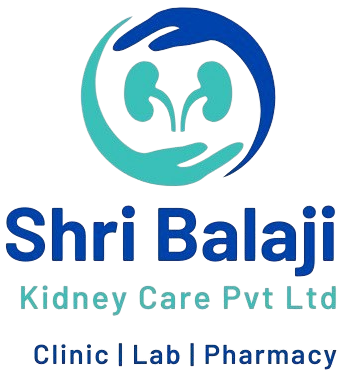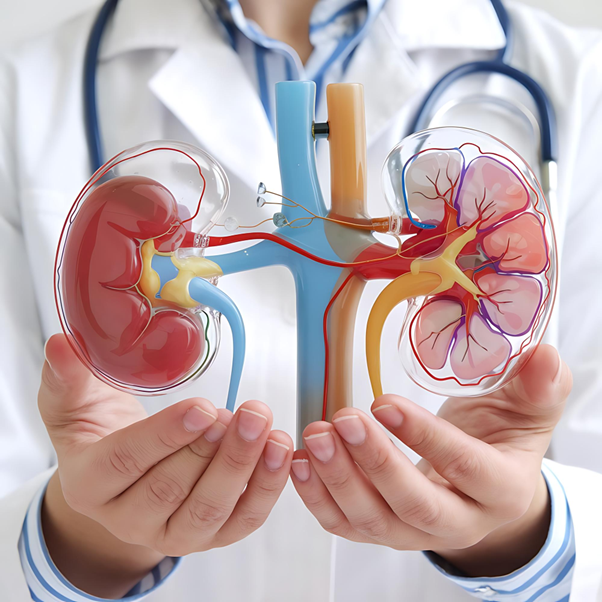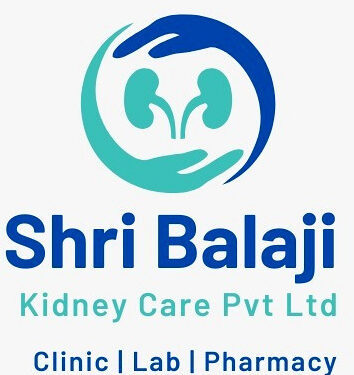Renal hypertension, or kidney-related high blood pressure, is caused by problems with the arteries that supply blood to the kidneys. If not managed well, it can lead to serious health issues.
What is Renal Hypertension?
Renal hypertension happens when the blood flow to the kidneys is reduced due to narrowing or blockage of the renal arteries. Decreased blood flow can cause the kidneys to release hormones that elevate blood pressure. In essence, renal hypertension can be both a cause and a consequence of kidney issues.
Causes of Renal Hypertension
Several factors can lead to renal hypertension:
- Atherosclerosis: This is the most common cause. It occurs when fatty deposits build up in the arteries, narrowing them and reducing blood flow to the kidneys.
- Fibromuscular Dysplasia: A rare condition where abnormal growth occurs in the cells of the renal arteries, causing them to narrow.
- Chronic Kidney Disease: Long-term kidney disease can change kidney function and affect hormone levels, leading to high blood pressure.
- Other Health Conditions: Diabetes and high cholesterol can increase the risk of narrowing the renal arteries.
Symptoms of Renal Hypertension
In the early stages, renal hypertension might not show clear symptoms. However, as blood pressure increases, some common signs may include:
- High Blood Pressure Readings: Blood pressure readings above 140/90 mmHg.
- Headaches: Frequent headaches can result from high blood pressure.
- Fatigue: Feeling unusually tired may indicate underlying health problems.
- Blurred Vision: Changes in blood flow can affect your eyesight.
- Nausea or Vomiting: Severe cases may lead to stomach issues.
Diagnosing Renal Hypertension
To diagnose renal hypertension, doctors usually perform a few tests, including:
- Blood Pressure Measurement: Regular checks to see if your blood pressure is high.
- Blood Tests: To assess kidney function and check for other health issues.
- Urinalysis: Examining urine to find any signs of kidney problems.
- Imaging Tests: Ultrasounds or CT scans help visualize the renal arteries.
- Angiography: This test can directly show the blood vessels in the kidneys.
Treatment Options for Renal Hypertension
Managing renal hypertension usually involves lifestyle changes and medications:
- Lifestyle Changes:
- Healthy Diet: Eating a diet low in salt and unhealthy fats can help lower blood pressure.
- Exercise: Regular physical activity supports overall heart health.
- Weight Management: Keeping a healthy weight is important for controlling blood pressure.
- Limit Alcohol and Quit Smoking: Reducing alcohol and avoiding tobacco can significantly improve health.
- Medications: Doctors may prescribe various medications to manage high blood pressure, including:
- Antihypertensives: These help lower blood pressure.
- Statins: These help manage cholesterol levels and protect kidney health.
- Surgery: In severe cases, procedures like angioplasty may be needed to improve blood flow to the kidneys.
Renal hypertension is a serious condition that requires attention. Understanding its causes, symptoms, and treatment options is essential for effective management. If you think you might have renal hypertension or are experiencing related symptoms, talk to your healthcare provider for a complete evaluation and a personalized plan. Early detection and proper management can significantly improve your health and well-being.



